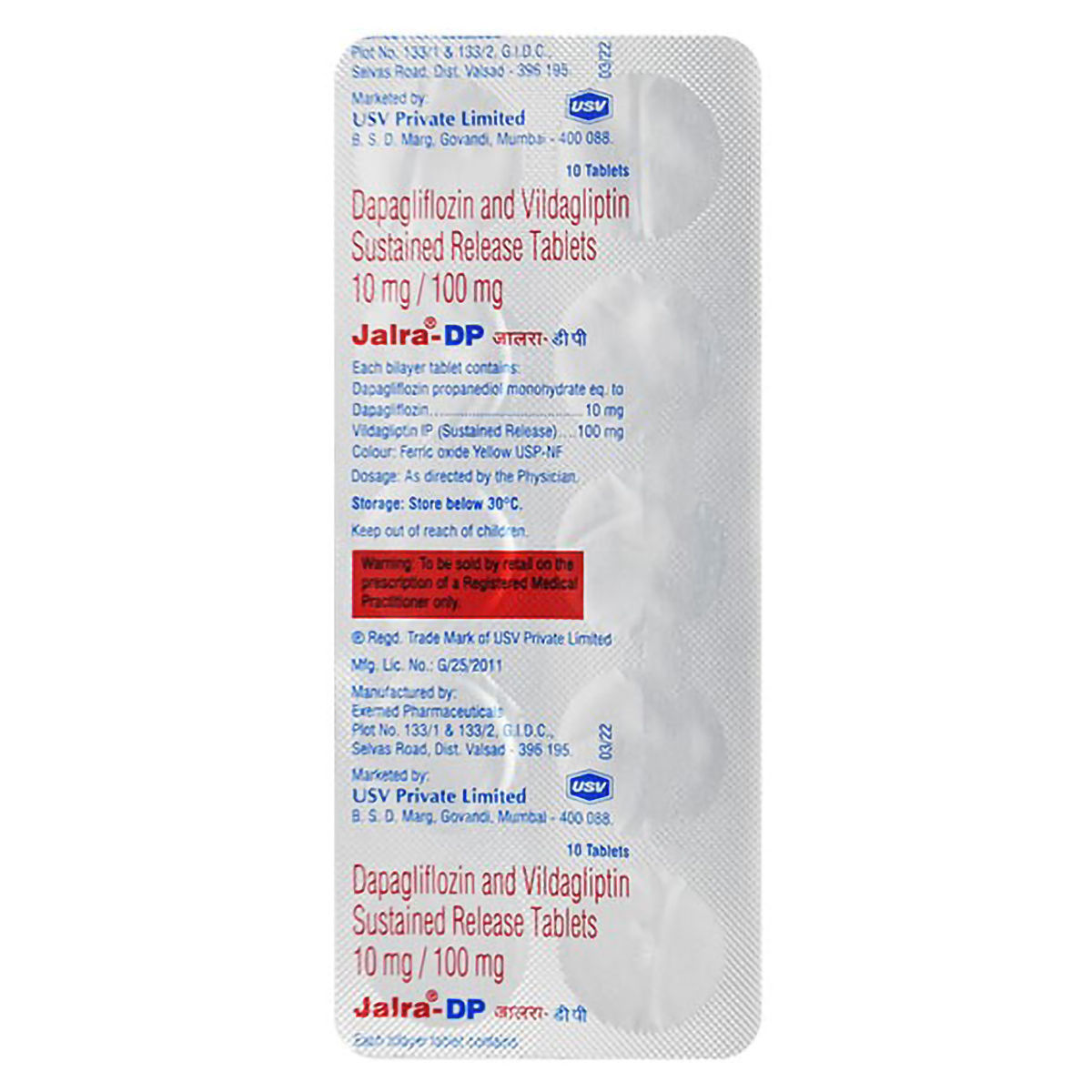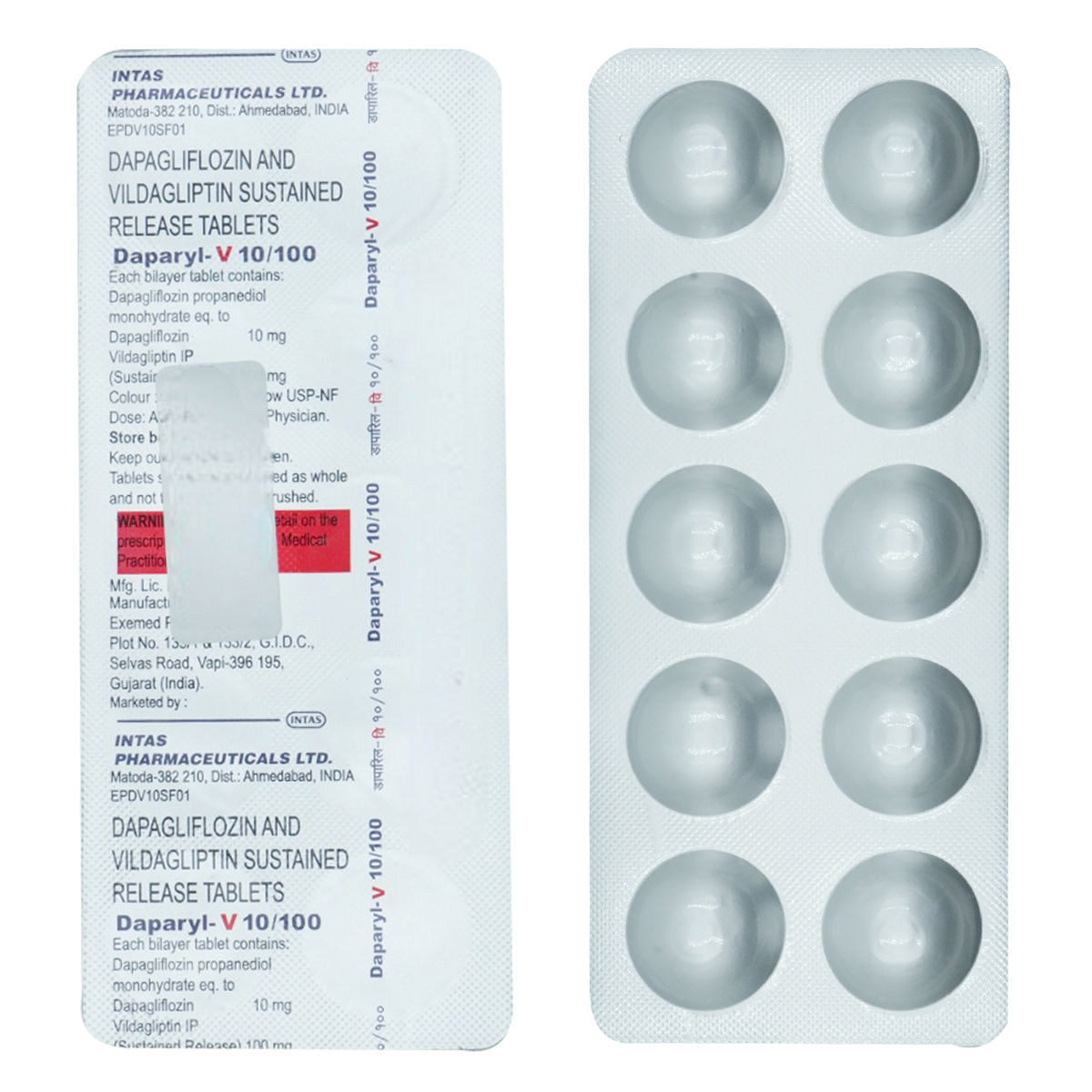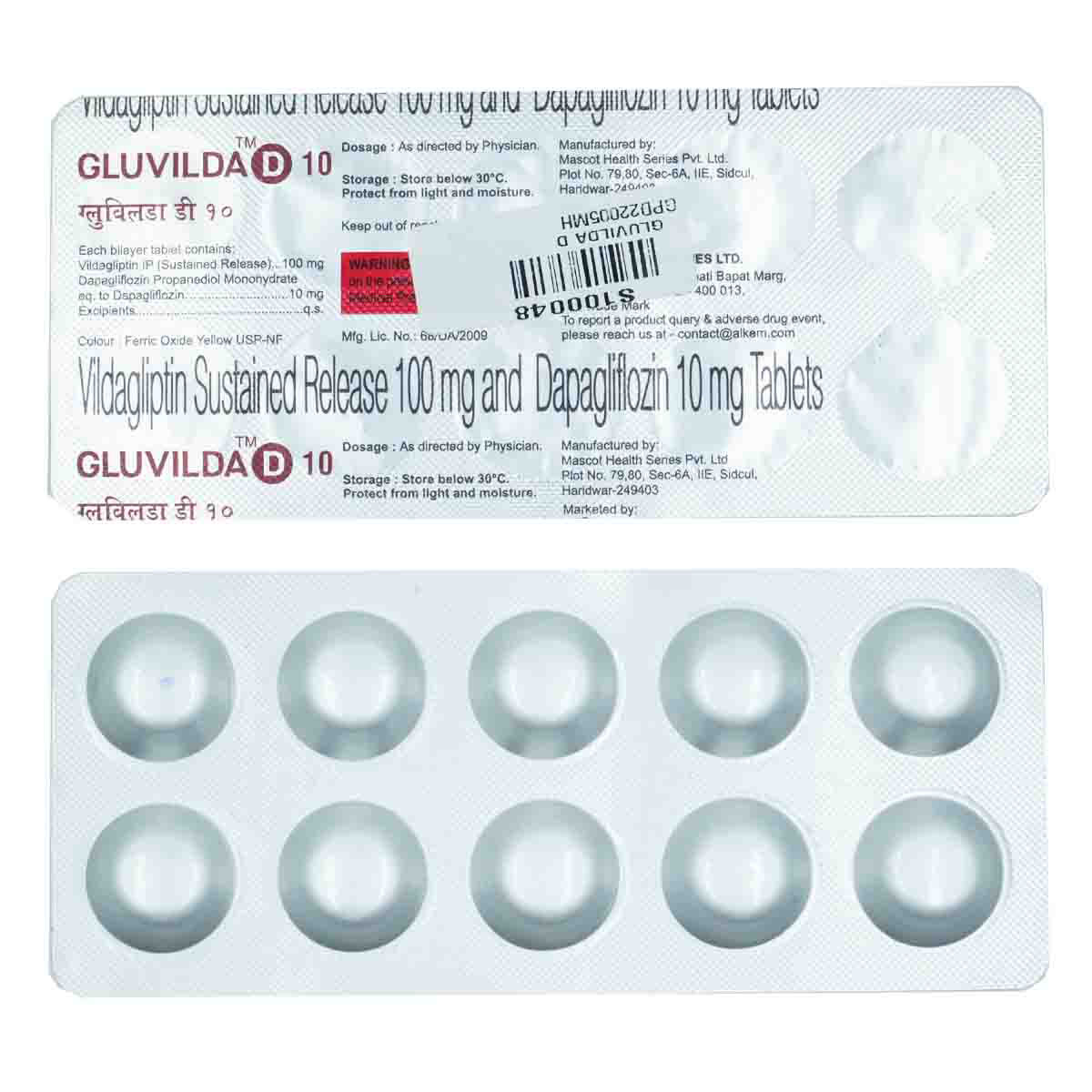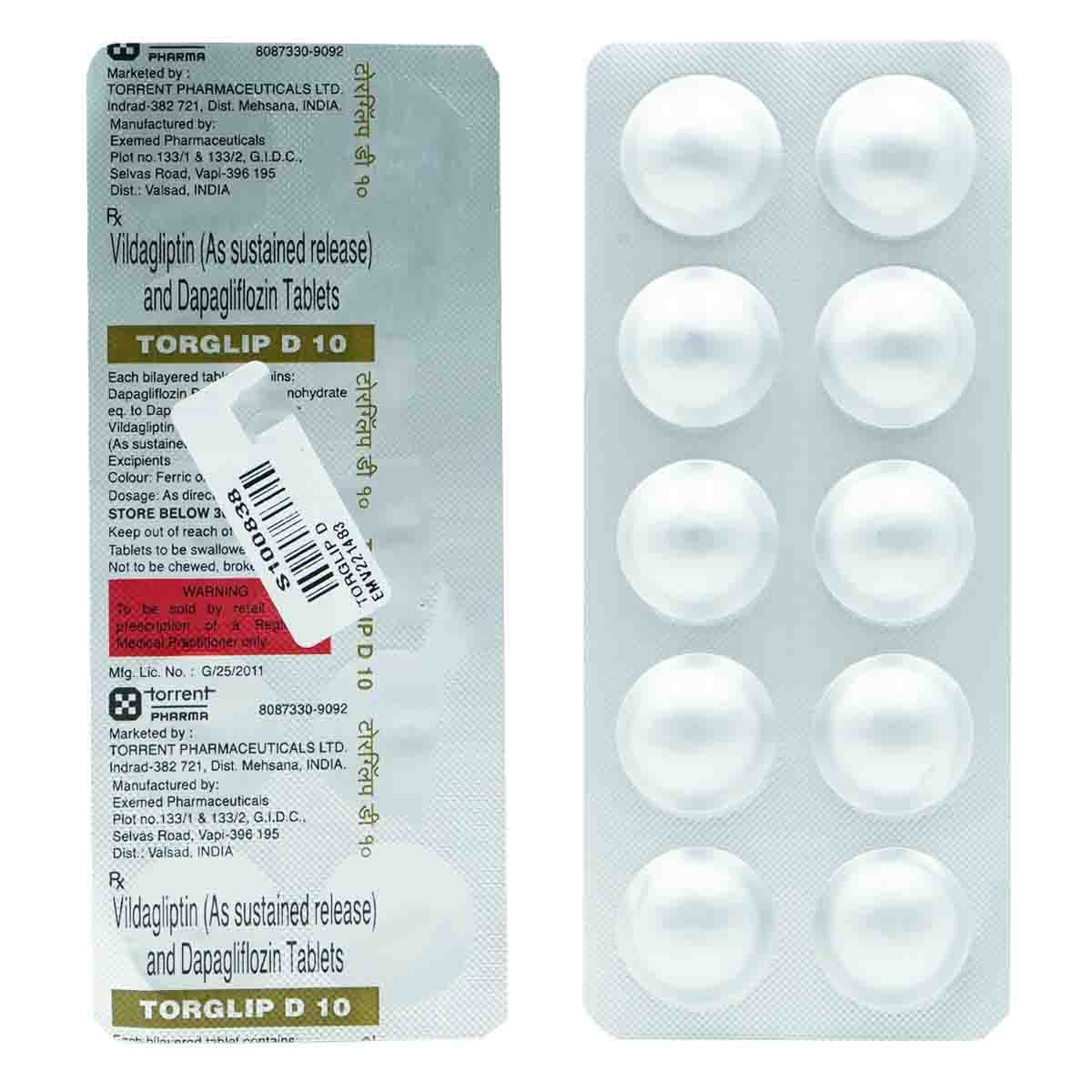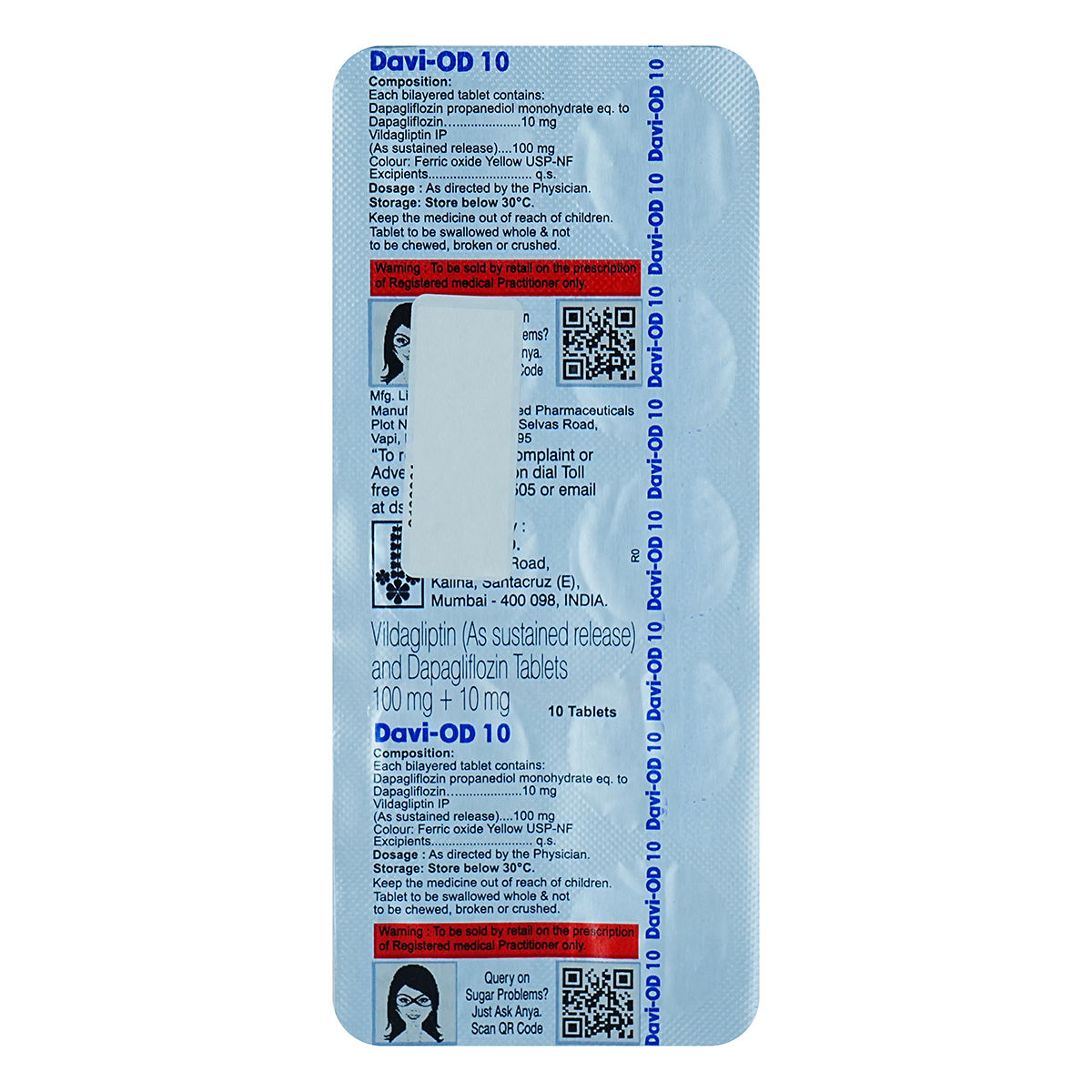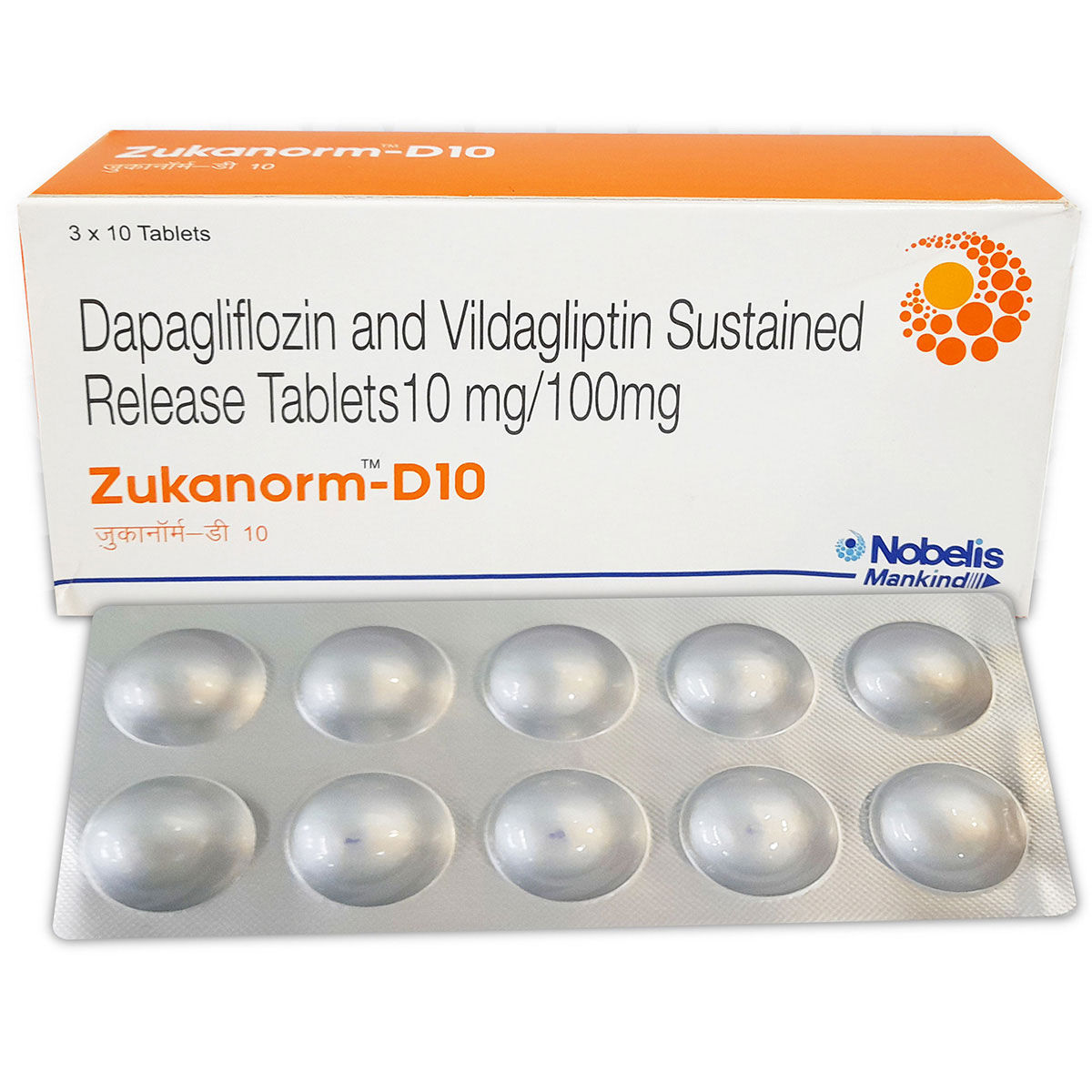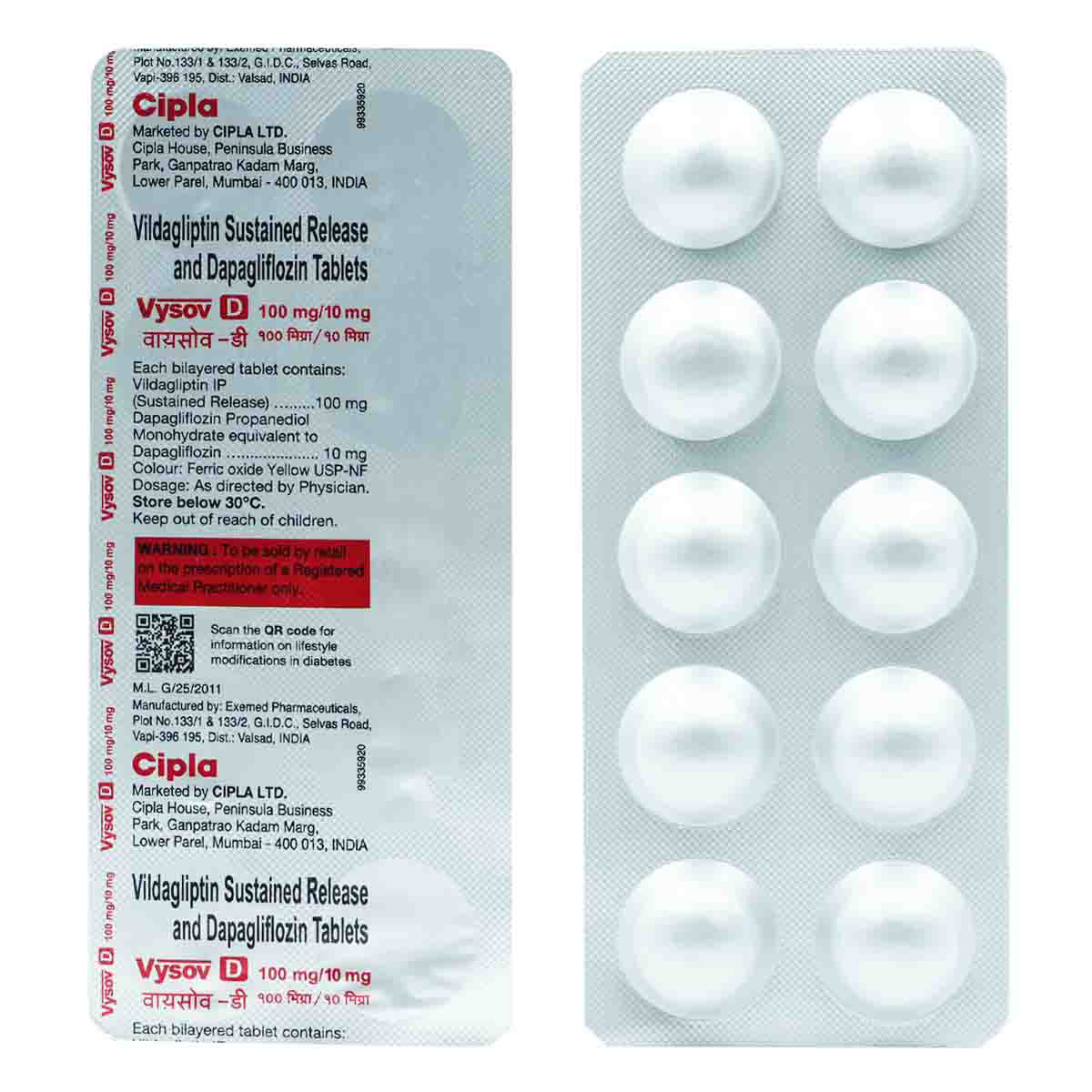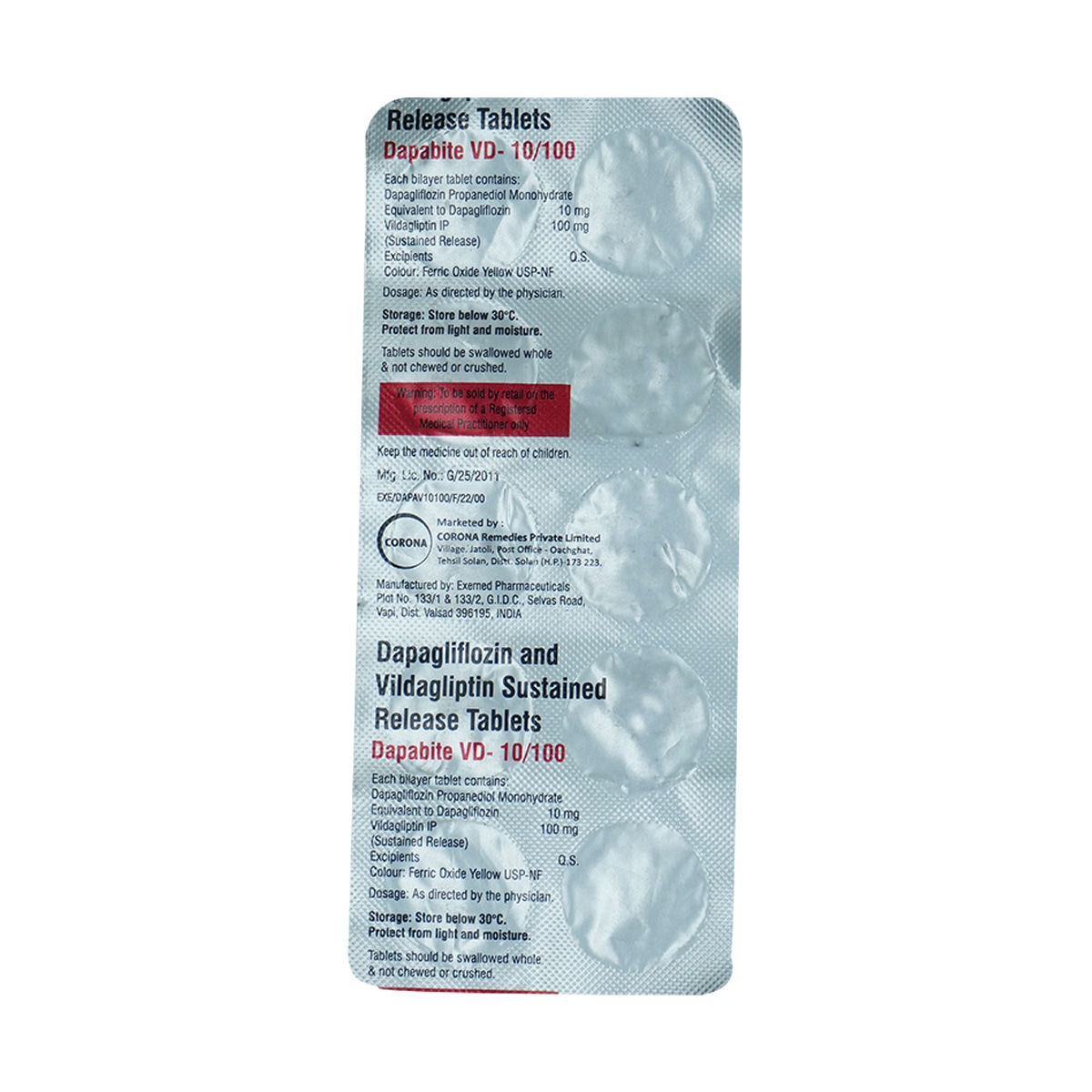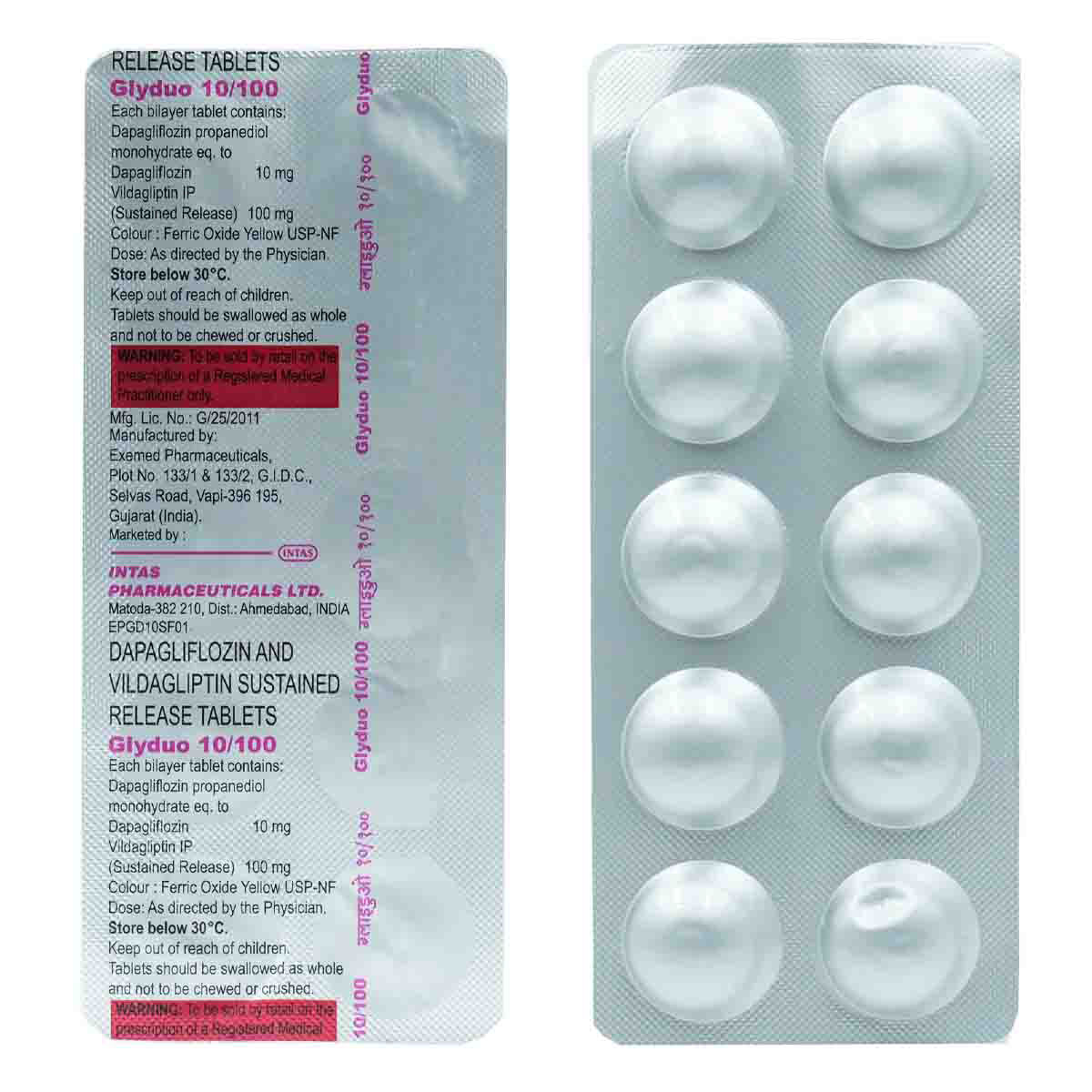Vilmed-D10 Tablet 10's
Vilmed-D10 Tablet is an antidiabetic medicine used to treat Type II Diabetes. It contains Dapagliflozin and Vildagliptin, which work by increasing the amounts of certain natural substances that lower blood sugar when it is high. Common side effects of this medicine are vomiting, nausea, dizziness, abdominal pain, headache, frequent urination, and allergic reactions. This medication is not recommended for use in children below 18 years of age.
₹189*
MRP ₹210
10% off
₹178.5*
MRP ₹210
15% CB
₹31.5 cashback(15%)
Free Delivery
With Circle membership
(Inclusive of all Taxes)
This offer price is valid on orders above ₹800. Apply coupon PHARMA10/PHARMA18 (excluding restricted items)
Know Your Delivery Time
Provide Delivery Location

Whats That

Secure Payment

India's Most Trusted Pharmacy

Genuine Products
Composition :
Manufacturer/Marketer :
Consume Type :
Return Policy :
Expires on or after :
About Vilmed-D10 Tablet
Vilmed-D10 Tablet is an antidiabetic medicine used to treat diabetes. It is used for the treatment of Type II Diabetes. Type II Diabetes Mellitus is a chronic condition that influences the body's metabolism of glucose or blood sugar. Insulin resistance or insufficient insulin production are the two main causes of type 2 diabetes.
Vilmed-D10 Tablet contains Dapagliflozin (sodium-glucose cotransporter-2 inhibitors) and Vildagliptin (dipeptidyl peptidase-4 inhibitor), which work by increasing the amounts of certain natural substances that lower blood sugar when it is high.
Vilmed-D10 Tablet may cause certain side effects, such as vomiting, nausea, dizziness, abdominal pain, headache, frequent urination, and allergic reactions. If these side effects persist or worsen, please consult your doctor. Vilmed-D10 Tablet should be taken as prescribed by your doctor.
Vilmed-D10 Tablet should be avoided if you are allergic to any of the medicines or their components. Inform your doctor about your medical history and the medicines you are taking, including herbs and supplements, before starting the treatment with Vilmed-D10 Tablet . This can help prevent unwanted effects. Let your doctor know if you are pregnant or breastfeeding before taking Vilmed-D10 Tablet . It is not recommended for use in children below 18 years of age.
Uses of Vilmed-D10 Tablet
Medicinal Benefits
Vilmed-D10 Tablet is a combination medicine containing Dapagliflozin and Vildagliptin. Vilmed-D10 Tablet belongs to the group of anti-diabetic medicines used to treat type-2 diabetes mellitus. Dapagliflozin helps remove excess sugar from the body via urine. Vildagliptin enhances glucose-mediated insulin secretion, thereby reducing fasting and post-prandial blood sugar concentrations.
Side Effects of Vilmed-D10 Tablet
- Headache
- Nausea
- Stomach upset
- Vomiting
- Abdominal pain
- Allergic reactions
- Painful urination
- Hypoglycaemia (low blood sugar)
- Dizziness
- Frequent urination
Directions for Use
Storage
Drug Warnings
Do not take Vilmed-D10 Tablet if you are allergic to any of its components. Before starting the treatment, inform your doctor about your medical history and the medications you take, including herbs and supplements, to rule out any side effects. Inform your doctor if you have any liver/kidney disease, heart problems, and hypertension before taking Vilmed-D10 Tablet . This medicine is not recommended for children as safety and effectiveness have not been established. Avoid drinking alcohol while on Vilmed-D10 Tablet as it increases the risk of hypoglycemia and lactic acidosis (when the lactic acid increases in the body, which impacts the functioning of various organs in the body). It is unknown whether Vilmed-D10 Tablet can be given to pregnant women or breastfeeding mothers. Hence, inform your doctor if you are pregnant or breastfeeding. It is not recommended for use in children below 18 years of age. Vilmed-D10 Tablet may cause dizziness; hence, drive or operate machines only if you are alert.
Therapeutic Class
Drug-Drug Interactions
Drug-Food Interactions
Diet & Lifestyle Advise
- Eat foods rich in healthy carbohydrates and fibre, fruits, whole grains, and vegetables.
- Try eating food at regular intervals. Do not skip meals. Also, try not to overeat.
- Follow a healthy diet and walk/exercise for at least 45 minutes.
- Maintain a healthy weight by exercising regularly.
- Avoid taking too much stress as it may elevate your blood sugar level. You can adopt stress management techniques like mindfulness to control stress-related blood sugar changes, meditation, or yoga.
- Keep your blood pressure as normal (140/90) as possible, as it reduces the risk of cardiovascular diseases in diabetes patients.
- Avoid smoking and alcohol consumption while on treatment with Vilmed-D10 Tablet .
Habit Forming
How Vilmed-D10 Tablet Works
What if I have taken an overdose of Vilmed-D10 Tablet
Alcohol
Unsafe
Avoid consumption of alcohol during treatment with Vilmed-D10 Tablet as it may cause serious side effects.
Pregnancy
Caution
If you are pregnant or planning pregnancy, inform your doctor before starting treatment with Vilmed-D10 Tablet . Your doctor may prescribe this medicine if the benefits outweigh the risks.
Breast Feeding
Unsafe
Vilmed-D10 Tablet is generally not recommended in breastfeeding. Hence, if you are breastfeeding, inform your doctor before using Vilmed-D10 Tablet .
Driving
Unsafe
Vilmed-D10 Tablet may cause dizziness and make you drowsy. Hence, drive only if you are alert after taking this medicine.
Liver
Caution
If you have a pre-existing or a history of liver disease, inform your doctor before taking Vilmed-D10 Tablet . Your doctor may adjust the dose of this medicine or prescribe a suitable alternative based on your condition.
Kidney
Caution
If you have a pre-existing or a history of kidney disease, inform your doctor before taking Vilmed-D10 Tablet . Your doctor may adjust the dose of this medicine or prescribe a suitable alternative based on your condition.
Children
Unsafe
Vilmed-D10 Tablet is not recommended for use in children below 12 years of age as the safety and efficacy are not established.
Country of origin
Manufacturer/Marketer address
Author Details
We provide you with authentic, trustworthy and relevant information
FAQs
Disclaimer
Product Substitutes







